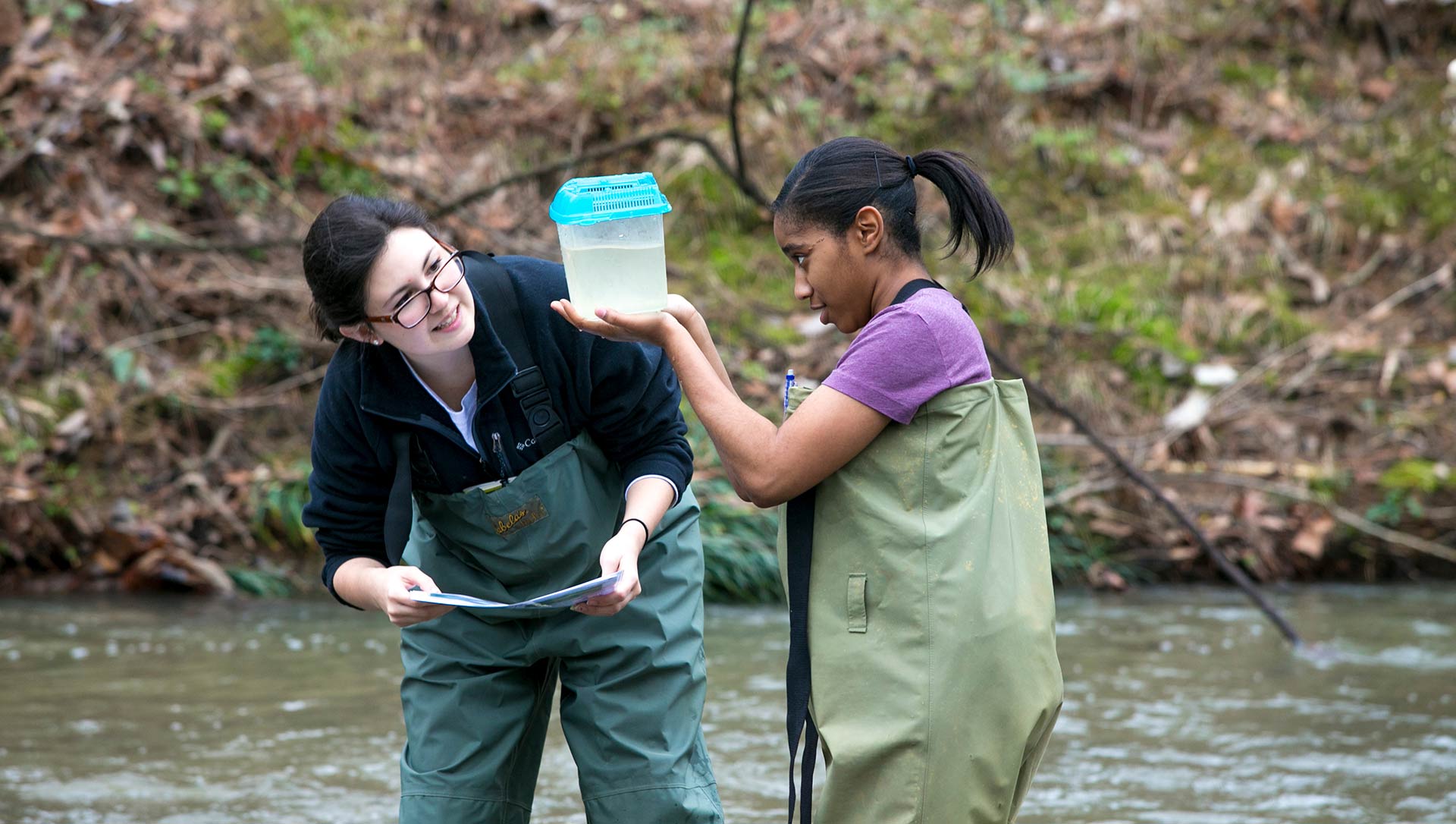Program Summary
The Bachelor of Science in marine science prepares a student for a career in this important and exciting part of modern biology. The goal of the program is to provide students with hands-on training in marine biology, including field studies, laboratory research, and aquaculture. A key component of the program is the summer experience at the Dauphin Island Sea Lab (DISL) off the Alabama coast.
One of the great things about studying at Dauphin Island Sea Lab is the diverse faculty, with professors from a variety of backgrounds. DISL faculty serve as mentors for marine biology students exploring careers and discovering their own interests. One of my favorite field/research experiences occurred right in the Island’s waters, where we spent time observing dolphins, documenting their behaviors, and taking photo IDs. I thoroughly enjoyed studying at DISL and benefitted greatly from my experience there. --Kristina Emmerson
Objectives & Goals
- Prepares you to excel in your chosen career path in biological and marine sciences.
- Provides a foundation for lifelong scientific investigation.
- Offers full immersion in one-of-a-kind field courses on campus and DISL taught by experts in their respective fields.
- Offers the opportunity to spend one or two summers at DISL.
Is This Program for Me?
Samford marine biology majors aspire to careers in biological, environmental, and marine science fields. They recognize that their experiences on campus and at DISL prepare them for graduate programs in biology, marine science, ecology, oceanography, etc.
Marine biology majors appreciate the close support and mentoring of expert faculty, and take advantage of summer term courses at DISL, recognized regionally and nationally as a marine science institution of academic and research distinction.
Being a Marine Science major at Samford has been some of the best learning experiences of my life. Despite the major's smaller size, I believe that I had the same, if not more, quality opportunities and professors to guide me in this field. The Dauphin Island Sea Lab provides almost unparalleled learning experiences that are hands on. Even on campus, the environmental science field has plenty of opportunities to learn about freshwater ecosystems around Birmingham. -–Frank D’Alonzo '17
What Makes Us Different?
Samford's marine biology program offers:
- Small class sizes
- One-on-one instructor interaction
- Student research opportunities
- Senior capstone course
- Travel courses focused on marine sciences, including an exceptional research facility at DISL
Career Preparation
Market Ready
Our emphasis on internships, research and hands-on experience in marine environments gives you outstanding preparation for jobs in the field, either immediately after graduating or after earning graduate degrees.
Career Opportunities
A degree in marine biology from Samford prepares you for many opportunities. “Marine biology” represents many disciplines and jobs in the marine sciences which are associated with studying marine life, not just those which deal with the physical properties of the sea. With a marine biology degree you could become a marine biological technician, ichthyologist, fishery biologist, marine mammalogist, microbiologist, systems analyst, or a mathematician. With additional training, you could become an marine economists and sociologists, who deal with living marine resource issues, are found within the field of marine biology. In addition, other marine scientists concern themselves exclusively with the physical and chemical aspects of the sea, such as physicists, hydrologists, and oceanography. With additional training , you could even become a college professor. The opportunities are endless.
Internships
Internships are a critical part of the college experience. An internship provides a real-world context for academics, helps students discern their future career path, builds connections to future careers, establishes relationships with diverse mentors, and identifies pathways to potential graduate and professional study. Samford’s major in marine biology has a highly customizable internship program that places students in internships that includes:
- Marine Mammal Care Center at Fort MacArthur (California)
- Monterey Bay Aquarium (California)
- Dolphin Research Center (Florida)
- Mote Marine Laboratory (Florida)
- University of Georgia's Marine Education Center and Aquarium
Biology faculty members mentor students in the internship process. We encourage all of our students to participate in at least one internship while at Samford. Faculty mentors help locate internship sites, design appropriate goals and activities, and asses the final outcome for the student and their internship host.


